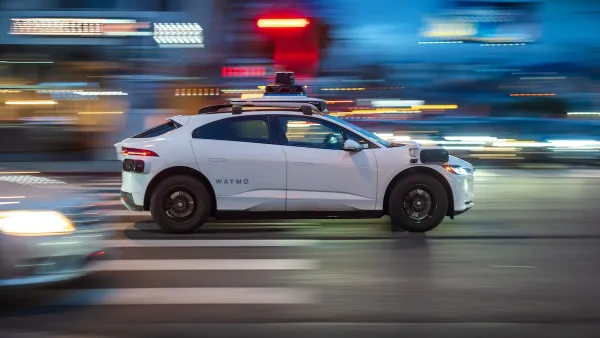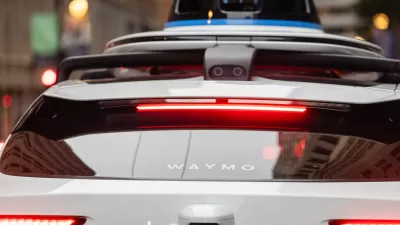Malcolm Moore reports on Sino-Singapore Tianjin Eco City, the world's largest eco-city, where residents will be guinea pigs as planners experiment with the city around them.
Located just 30 minutes from Beijing by high-speed train, Tianjin looks very much like any other Chinese city on the surface: "shrouded in smog and depressingly grey," writes Moore. However, its ordinary appearance belies the progressive experiments being tested in the city. And according to Moore, "If a few of the small changes adopted in Tianjin were rolled out nationwide, the results could dramatically change China's devastating impact on the environment."
Some of the innovating technologies being tested in the city are electric driverless cars, a low energy lighting system, and trash cans that empty themselves.
Practicality, adaptability, and commercial viability are the goals guiding the city's technological experiments.
"Our eco-city is an experiment, but it is also practical," said Wang Meng, the deputy director of construction. "There are over 100 eco-cities in the world now, and they are all different. If you look at the one in Abu Dhabi, they spent a huge amount of money and bought a lot of technology. It is very grand, but is it useful?"
FULL STORY: Chinese move to their eco-city of the future

Maui's Vacation Rental Debate Turns Ugly
Verbal attacks, misinformation campaigns and fistfights plague a high-stakes debate to convert thousands of vacation rentals into long-term housing.

Planetizen Federal Action Tracker
A weekly monitor of how Trump’s orders and actions are impacting planners and planning in America.

Chicago’s Ghost Rails
Just beneath the surface of the modern city lie the remnants of its expansive early 20th-century streetcar system.

Bend, Oregon Zoning Reforms Prioritize Small-Scale Housing
The city altered its zoning code to allow multi-family housing and eliminated parking mandates citywide.

Amtrak Cutting Jobs, Funding to High-Speed Rail
The agency plans to cut 10 percent of its workforce and has confirmed it will not fund new high-speed rail projects.

LA Denies Basic Services to Unhoused Residents
The city has repeatedly failed to respond to requests for trash pickup at encampment sites, and eliminated a program that provided mobile showers and toilets.
Urban Design for Planners 1: Software Tools
This six-course series explores essential urban design concepts using open source software and equips planners with the tools they need to participate fully in the urban design process.
Planning for Universal Design
Learn the tools for implementing Universal Design in planning regulations.
planning NEXT
Appalachian Highlands Housing Partners
Mpact (founded as Rail~Volution)
City of Camden Redevelopment Agency
City of Astoria
City of Portland
City of Laramie





























